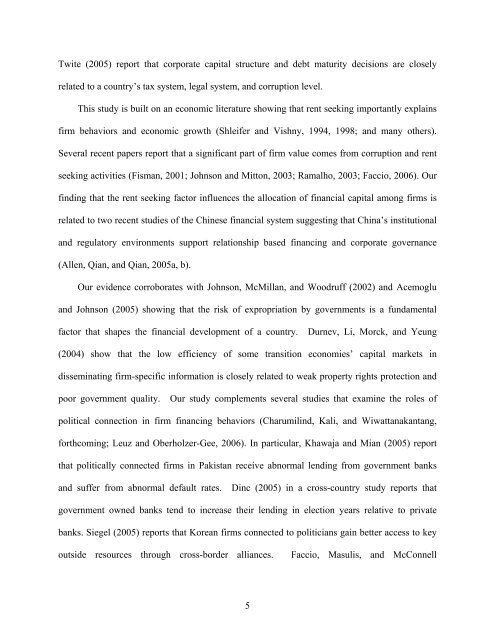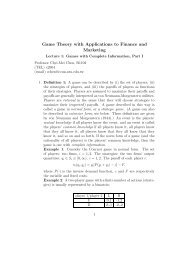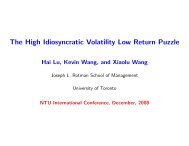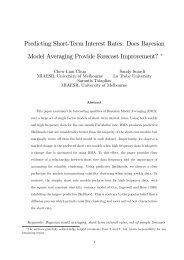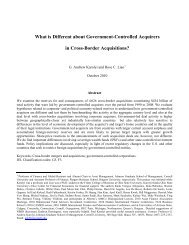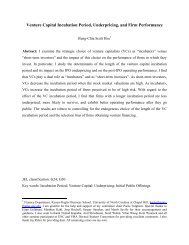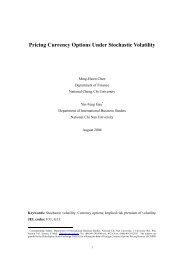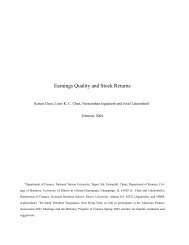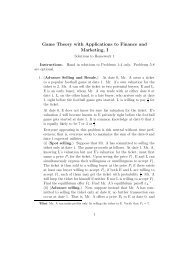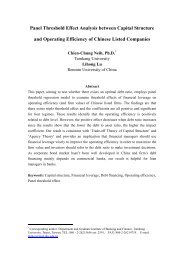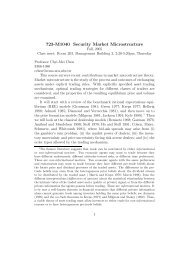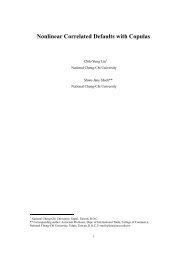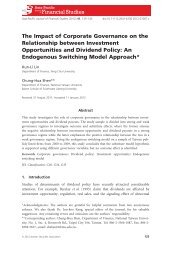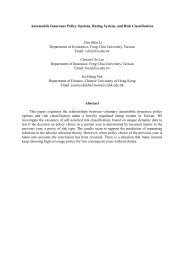Rent Seeking and Corporate Finance - CUHK Business School ...
Rent Seeking and Corporate Finance - CUHK Business School ...
Rent Seeking and Corporate Finance - CUHK Business School ...
You also want an ePaper? Increase the reach of your titles
YUMPU automatically turns print PDFs into web optimized ePapers that Google loves.
Twite (2005) report that corporate capital structure <strong>and</strong> debt maturity decisions are closelyrelated to a country’s tax system, legal system, <strong>and</strong> corruption level.This study is built on an economic literature showing that rent seeking importantly explainsfirm behaviors <strong>and</strong> economic growth (Shleifer <strong>and</strong> Vishny, 1994, 1998; <strong>and</strong> many others).Several recent papers report that a significant part of firm value comes from corruption <strong>and</strong> rentseeking activities (Fisman, 2001; Johnson <strong>and</strong> Mitton, 2003; Ramalho, 2003; Faccio, 2006). Ourfinding that the rent seeking factor influences the allocation of financial capital among firms isrelated to two recent studies of the Chinese financial system suggesting that China’s institutional<strong>and</strong> regulatory environments support relationship based financing <strong>and</strong> corporate governance(Allen, Qian, <strong>and</strong> Qian, 2005a, b).Our evidence corroborates with Johnson, McMillan, <strong>and</strong> Woodruff (2002) <strong>and</strong> Acemoglu<strong>and</strong> Johnson (2005) showing that the risk of expropriation by governments is a fundamentalfactor that shapes the financial development of a country. Durnev, Li, Morck, <strong>and</strong> Yeung(2004) show that the low efficiency of some transition economies’ capital markets indisseminating firm-specific information is closely related to weak property rights protection <strong>and</strong>poor government quality. Our study complements several studies that examine the roles ofpolitical connection in firm financing behaviors (Charumilind, Kali, <strong>and</strong> Wiwattanakantang,forthcoming; Leuz <strong>and</strong> Oberholzer-Gee, 2006). In particular, Khawaja <strong>and</strong> Mian (2005) reportthat politically connected firms in Pakistan receive abnormal lending from government banks<strong>and</strong> suffer from abnormal default rates. Dinc (2005) in a cross-country study reports thatgovernment owned banks tend to increase their lending in election years relative to privatebanks. Siegel (2005) reports that Korean firms connected to politicians gain better access to keyoutside resources through cross-border alliances.Faccio, Masulis, <strong>and</strong> McConnell5


